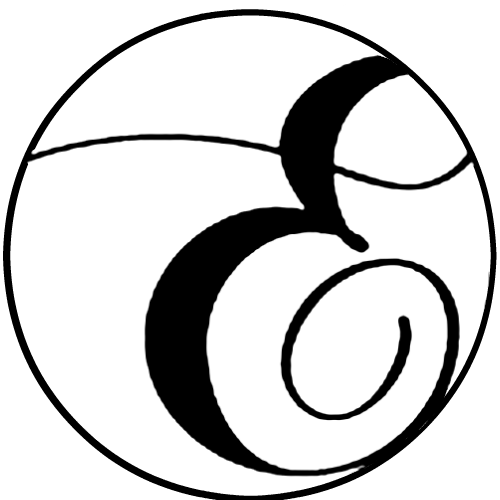For Christmas, Gary gave me a book written by Paul Chek, called How to Eat, Move & Be Healthy. First, Paul Check, for those of you who don’t know him, is a leader in the wellness & personal training industry. The man is brilliant in his approach.
Last January, a member on another board suggested that I read the Metabolic Typing Diet. I started it, but never finished (I do that quite a bit). Then a couple of months ago, Gary bought Dr. Mercola‘s book: Total Health. Dr. Mercola also uses the Metabolic Typing Diet.
Anyway, even though I didn’t finish it, it really made sense to me that everyone is different in how they metabolize food & therefore we each need different macros & food sources to become optimal in our health. The idea behind Metabolic Typing is that depending on where our heritage originated, the food sources that are native to that area are the foods that we should be eating. Cultures have been living on the foods that they have cultivated for thousands of years & our bodies have adapted to those food sources.
It’s only been in the past 100 or so years that people have become more transient so that people are eating different foods than their ancestors, and with importing foods from different agricultural areas, and not to mention the modern day food manufacturers, our bodies aren’t capable of changing that rapidly. Therefore, since our bodies aren’t conditioned to eat these new foods (as well as the chemicals we put in foods) we don’t function as well, and as a result, our bodies cope by gaining fat, and growing disease.
Anyway, so you take a test that is subjective, and based on the answers, you are either a protein type, carbohydrate type or a mixed type. It seems as though Endomorphs (people who gain muscle easily) are protein types, Ectomorphs (people who have a hard time gaining muscle) are Carbohydrate types and Mesomorphs (people who are in between an ecto and endo) are Mixed. Ultimately, Everyone is a Mixed – it just depends on how far on the scale you are from the end.
I’m pretty much at the far end as a Protein type. I’m not sure why, but this makes me sad. Probably because I like sugar. I like carbohydrates, and they’re bad for me. It makes sense though as to why when I eat clean, I don’t crave sugar or carbs, and why I have no problems with energy during times of extremely low carbohydrate intake. I want to have a healthy relationship with carbohydrates, but I guess it’s just not in the cards for me.
In addition to having a type of diet, he also recommends food rotation. This seems difficult to me. I’m okay eating the same things day after day, and with his approach, I wouldn’t be able to do that. So, at this point, these are just thoughts. I may follow his plan with the macros & allowed foods (for me that would be 45p/35c/20f) those numbers include Non-Starchy Vegetables as carbohydrates, and fat ingested through protein sources is not counted as fat.
Since my competition in November I’ve eased up on the “strictness” of my diet. I don’t feel good, I’ve been sleeping more & I can see negative visual changes to my body.
It’s hard in this world where images of bad for me food are bombarding me on a regular basis through television & magazine print ads. Also, I feel pressure from those around me (not G) that my diet is “too restrictive”, yet when I open my diet up, I feel like crap. So, I guess now I know to respond with “yes, maybe it is restrictive, but I feel better eating this way.”
I think we all have varying degrees of commitment & flexibility. Dr. Mercola, Paul Chek & the Metabolic Typing diet all call for organic foods – absolutely CLEAN foods & you need to take your environment into play. I think it helps us to understand what foods give us energy, and which foods deplete our body. Whether you follow this diet or not is fully up to you, and to what extent you can follow the plan is all an individual thing.
We live in an environment where most people take medicine to solve their problems – never once thinking that what we put into our bodies directly affects how our bodies perform. In Paul Chek’s book he spends quite a bit of time discussing how you feel 1-2 hours after eating to decipher if what you ate was good for your body. Also, he discusses how your stool (I know – a gross topic) will directly tell you if your diet is good or not.
I’d definitely recommend both books- if for nothing more than to get to know your body a bit better.

Elizabeth is a Master Certified Life and Health Coach with over 18 years of experience, dedicated to helping women in midlife thrive through holistic health and wellness. Her personal journey began with a desire to reduce her own breast cancer risk, which evolved into a mission to guide women through the complexities of midlife health, from hormonal changes to mental clarity and emotional resilience.
Elizabeth holds certifications from prestigious institutions such as The Life Coach School, Precision Nutrition, and the American Council on Exercise, as well as specialized training in Feminist Coaching and Women’s Hormonal Health. Her approach is deeply empathetic, blending her extensive knowledge with real-life experience to empower women in their 50s and 60s to build sustainable health habits that last a lifetime.
Recognized as a top voice in women’s health, Elizabeth speaks regularly on stages, podcasts, and webinars, inspiring women to embrace midlife with energy, confidence, and joy. Her passion is helping women regain control of their health, so they can fully engage in the things that matter most to them—whether that’s pursuing new passions, maintaining strong relationships, or simply feeling great in their own skin.
